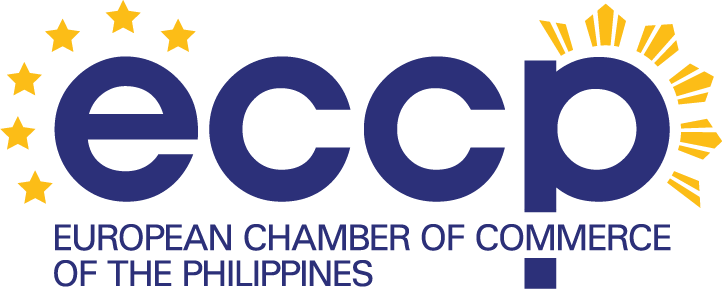
Exporting to Europe | Module 1: Are you ready to export?
Exporting products and services offers a lot of benefits and opportunities for businesses to thrive internationally. From access to potential partners; business expansions; to fund sourcing, exporting can open doors for businesses to grow their markets and increase potential profits.
In this regard, the ECCP is pleased to introduce a full-build program on capacity building that aims to provide a step-by-step guide on exportation designed for potential SME exporters. The primary aim of the 5-module program is to build the analytical knowledge, skills, and behavior of a new exporter (0-3 years of exporting experience) in order to sustain their operations in the long run. The modules are short but direct to the point with practical cases and inputs from the main facilitator and invited guest speakers.
To give emphasis on significant topics, this program is divided into 5 modules that will require 2 half-day sessions per module.
Topical Outline per Module (Two half-day sessions per Module)
- Module 1: Are YOU ready to export? | August 10 & 24, 2023; 1:00-4:00 pm
- Export Readiness Assessment of organization - Used to evaluate a potential exporter's readiness to enter international markets. This assessment will typically evaluate the company's understanding of international markets, its ability to meet export requirements, its financial stability and resources, and its ability to manage the risks associated with entering foreign markets.
- Legal and Buyer's Requirements per industry - Exporting goods and services legally requires following certain regulations and laws set by the government. Depending on the country, these regulations may vary. Generally, a business has to register with the government in order to export goods and services. Additionally, the business must comply with the relevant export regulations, which may include obtaining export licenses and permits, complying with export control laws, and adhering to import and export restrictions. Next to this is the buyer's requirements that need to be also met before one can export.
- Module 2: Assessing Your Organization | September 8 & 9, 2023; 1:00-4:00 pm
- Company Audit: Marketing, Operations, HR, Finance - The main purpose of an export company audit is to provide assurance that the company is complying with applicable laws and regulations and that it is implementing the necessary procedures and controls to reduce the risk of non-compliance.
- Module 3: Target Market for Export | October 10 & 24, 2023; 1:00-4:00 pm
- Desk Research - Desk research is usually used to gain an understanding of a particular topic or to gain an understanding of an industry or market and is generally less expensive and time consuming than primary research, as it does not require the researcher to collect original data. However, desk research can be limited in its scope as the data collected has already been published and can be biased or outdated.
- Target Market Identification - A target market is the specific group of people that a company hopes to appeal to with its products and services. It typically involves segmenting a market based on certain demographic criteria such as age, gender, income level, location, and lifestyle. Positioning involves creating a unique and meaningful message that appeals to this target market and differentiates the product or service from its competitors.
- Module 4: Export Marketing | November 7 & 21, 2023; 1:00-4:00 pm
- Export Strategies 1 - Export marketing involves researching foreign markets, determining the best product or service to offer, and then developing a marketing mix to reach and influence the target customers. It could use the traditional ways of doing marketing or it could also incorporate digitalization strategies.
- Module 5: Export Management | December 5 & 12, 2023; 1:00-4:00 pm
- Export Process Flow Management - Export management is the process of overseeing and managing international shipments of goods and services from one country to another. It involves managing both the physical and administrative procedures of shipping products to a foreign market. This includes navigating international laws and regulations, preparing and organizing shipments, and managing the financial transactions associated with the export of goods and services. Export management also involves understanding the customs requirements of the target market, which includes classifying goods for customs purposes and determining any applicable taxes or tariffs. The goal is to ensure that the export process runs smoothly and that goods arrive safely and on time.
- Presentation of Export Plan per Organization / Graduation - Presentation of export plan per organization using a presentation deck of 15 slides only
By the end of the program, the participants will be able to export effectively in their identified target markets using export tools and techniques available for their use.



